What happens when irreplaceable Jurgen Klopp and Pep Guardiola leave?
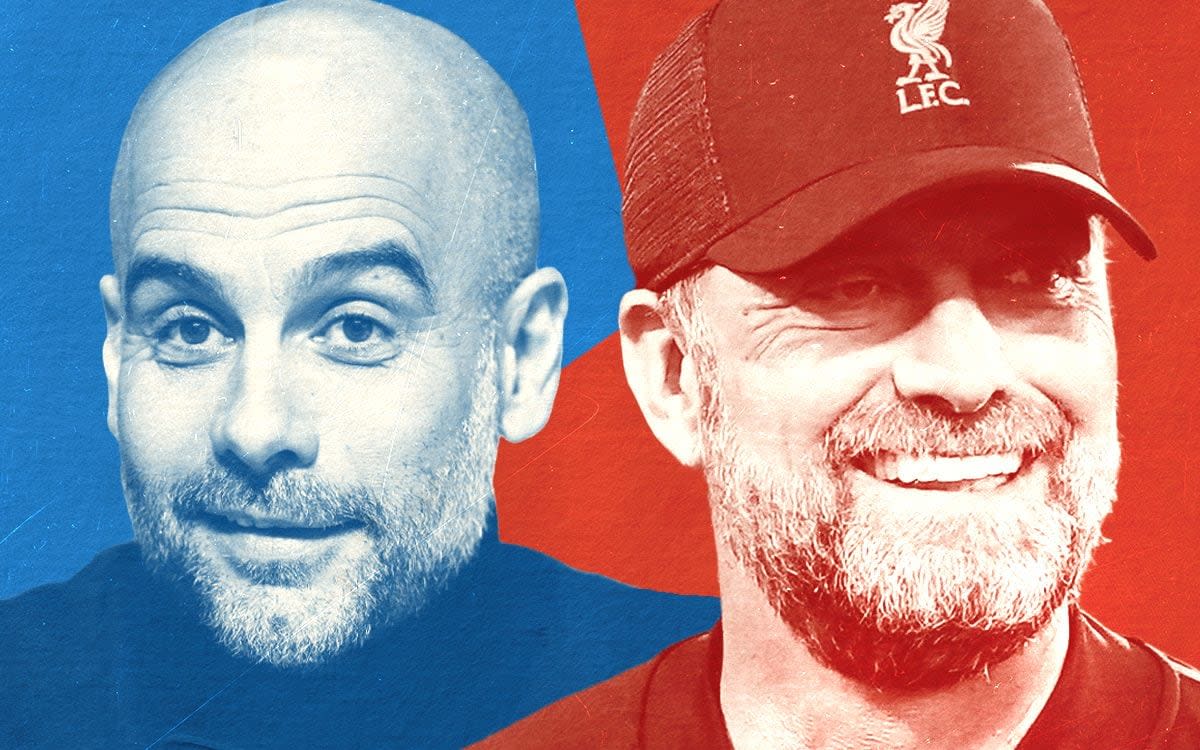
Ahead of the second seismic meeting of Liverpool and Manchester City in a week, one issue weighs heavy on the minds of those in charge of England's current pre-eminent clubs: who could possibly succeed their totemic managers?
Chris Bascombe and James Ducker analyse when Jürgen Klopp and Pep Guardiola might depart their stages in England, and what their employers are doing to prepare for that day.
Jürgen Klopp
By Chris Bascombe
What are the chances of Klopp staying beyond his current contract?
Within hours of Liverpool winning their sixth European Cup, Fenway Sports Group’s senior executives were walking through the interview zone at Madrid’s Wanda Metropolitano when they were met with a pressing question.
“When are you going to get Klopp to sign another contract?”
Klopp still had three years left to run on his existing deal in the summer of 2019, the situation nowhere near as urgent as it will become over the course of the next 18 months, with the manager's contract due to expire in 2024. Nevertheless, FSG had an eye on the long-term as much as here and now.
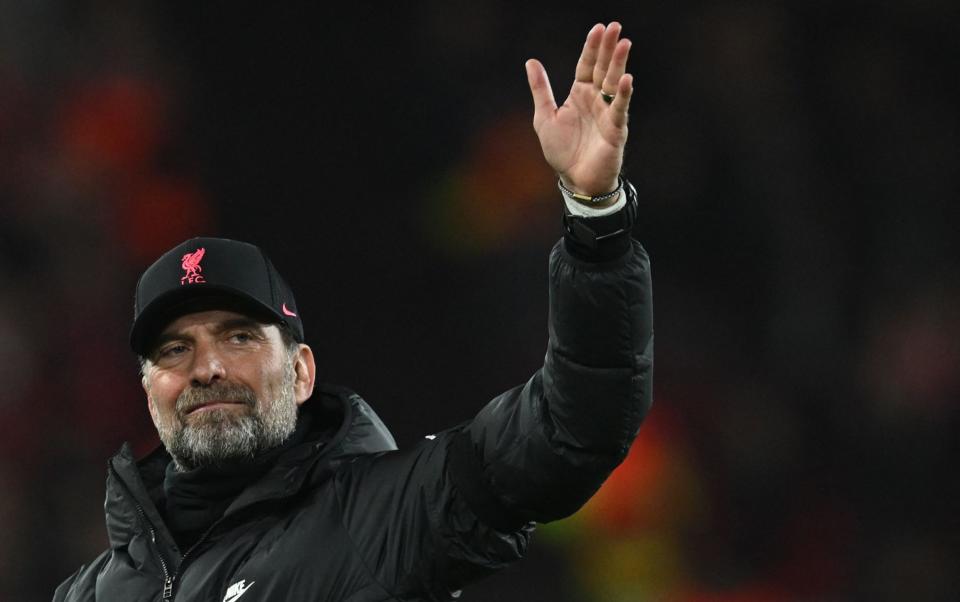
Their immediate answer was - in time - to gently persuade Klopp to extend his terms without exerting pressure but on the understanding when he felt it right, the details would be swiftly drawn up. There was even a tentative willingness to entertain the idea of a sabbatical, with Klopp taking a year out with his family to re-energise, returning after an assistant had kept the engine running. It was unnecessary, with Klopp putting pen to paper six months later.
The situation is similar now, albeit there is less time before his deal expires. Fenway have identified who they wish to be in charge beyond the next two years - Klopp himself. One day, his public reticence to continue will be accompanied by a private confirmation that FSG must identify his replacement. Until then, the club will be assessing a volatile market, aware that the ideal successor today may not be in 2024, while others may have emerged over the course of two years.
What is the blueprint for the next coach?
Liverpool’s criteria will be as it was when recruiting Brendan Rodgers in 2012 and Klopp in 2015. Overperformance metrics are fundamental. They are most impressed by those who shine against teams with bigger salaries and budgets.
Klopp was able to make it look like a level playing field against Bayern Munich on the pitch when, off it, that was far from the case. Dortmund have not won the Bundesliga since Klopp left. He has replicated that in England where Manchester United, Chelsea and - obviously - Manchester City’s resources are greater.
That is the challenge for a contender like Steven Gerrard. Much as Gerrard and Aston Villa do not want his stint in the Midlands to be regarded as an apprenticeship, if he excels he will obviously be on the shortlist. But no-one knows better than Gerrard he must prove himself more than an emotional choice.
On one hand Gerrard needs boardroom backing to underline his credentials at Villa - willingly accepting the ambition to make Philippe Coutinho’s move permanent - yet in some respects there would be more admiration if he led his side to seventh with the 12th-lowest Premier League salary than sixth with the sixth biggest. Again, the overperformance criteria is key.
That is why seemingly obvious choices - those who have just won titles in the major European leagues with the biggest salary and recruitment spending - will not necessarily be as attractive as appearances suggest.
That said, Liverpool are in a different world than when Rodgers and Roberto Martinez were the leading candidates in 2012. Ten years ago, a coach such as Brighton’s Graham Potter would have been on John W Henry’s radar - all the data pointing to someone who produces a modern brand of football without significant wealth.
Liverpool are in a different place now. They will have their pick of the best of the best in 2024 when Klopp goes, able to interview the elite coaches with a recent history of trophy collection.
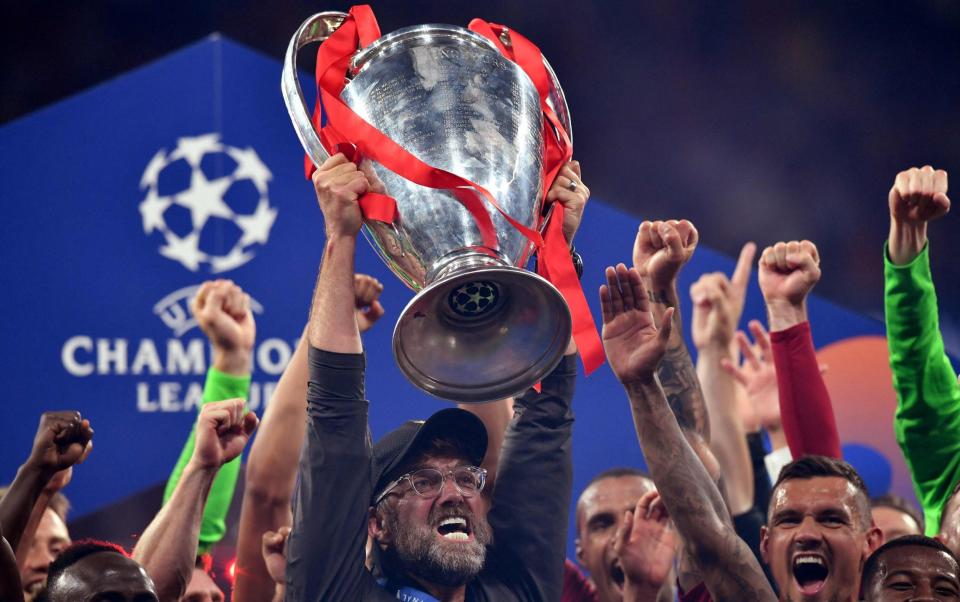
Having said all that, the Liverpool manager’s job is also about more than coaching, and the club are aware that the man who leads the team also has to connect with Anfield emotionally and even politically, given the city has not returned a Conservative MP since 1979. FSG’s due diligence will have to take this into account, which always makes it trickier at Liverpool than at other clubs.
But who might emerge over the next two years who will naturally ‘get’ Liverpool? What if Xabi Alonso - currently managing Real Sociedad ‘B’ team - takes a high profile European job and thrives? Which sides might emerge in Germany, Spain and Italy to disrupt the status quo, led by young, vibrant coaches who can pick up Klopp’s baton?
Who will lead the search?
Michael Gordon and sporting director Julian Ward, who will replace Michael Edwards this summer, will lead, while in the background the data team led by director of research Ian Graham are tasked with keeping a due diligence file on every coach (and players) of interest.
Welshman Graham - a Cambridge graduate with a PhD in physics - joined Liverpool in 2012. He had previously worked at Decision Technology, forecasting consumer behaviour to enable businesses to maximise their profits. At Anfield he formed a four-man unit independent of the coaching staff, providing dossiers which have contributed to the club’s successful recruitment policy.
Graham tracked Klopp for years and was instrumental in reassuring FSG that he had to be Liverpool’s number one target when the decision was taken to dismiss Rodgers, presenting the owners with a research paper on the German manager’s 10 Bundesliga seasons. For example, Graham’s data regarding Dortmund’s performances showed that a decline in Klopp’s final season in Germany was an anomaly which did not reflect the quality of performances.
Liverpool-born Ward has worked alongside Edwards for the last nine years, having previously scouted for Manchester City and the Portugal national team. When Edwards announced he was leaving at the end of this season, FSG confirmed Ward’s promotion. Some might argue Edwards saw a tricky future ahead if Klopp leaves. Finding a successor will be an unenviable task. A more positive appraisal is what better way to choreograph a new sporting director's introduction than to credit him for having convinced Klopp to commit for another two years. Perhaps that is too cynically optimistic.
FSG president Gordon is Liverpool’s modern Peter Robinson. Never heard, rarely seen, completely without ego, but smart and resolute when it comes to ‘sticking to the plan’. The relationship of trust between him and Klopp is at the heart of the Anfield revival.
You can be sure the more Gordon and Ward are searching and researching, the greater their hope their number one choice - Klopp himself - is seduced by the chance to go beyond his 10th anniversary. As Klopp accepted in 2019, walking away from a dream job, and a dream team, is easier in theory than reality.
Is continuity a key consideration?
Liverpool will face the same dilemma as Sir John Smith and Peter Robinson in 1974: how do you replace the Godfather of your success?
When Bill Shankly stepped aside they found the answer within. Current assistant Pep Lijnders will hope the spirit of boot room transition lives on. There is no suggestion from the top that Lijnders is being primed to be the next Bob Paisley or Joe Fagan, but as someone who knows the training ground drills, and is integral to the culture it would be insane if a Klopp exit triggered a ‘brain drain’ of his backroom staff, especially as so many of the squad have deals beyond 2024 and are so comfortable with the current routines.
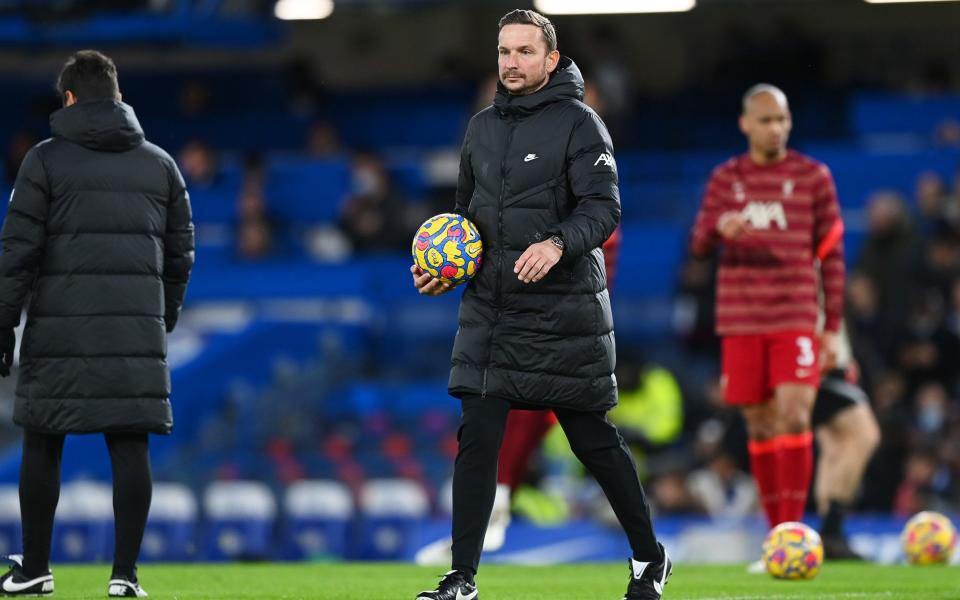
Klopp will feel responsibility for those whose enduring Anfield employment will rely on him. New managers always tend to bring an army of lieutenants with them, changing the dynamic at the training ground. That is dangerous when so little at Liverpool needs to change.
Anything threatening continuity (or as close to it when the main man is no longer around) post 2024 would be dangerous, so the next man must understand and respect that. The hope must be that they are willing and capable of working with those that Klopp leaves behind, and that those who were hired by Klopp will wish to stay if asked.
The fact that Klopp is not likely to leave for another job, taking his staff with him, might help. Liverpool had to start again in 2015. If Klopp really does call it quits, there will be no debris to sweep away in 2024.
Pep Guardiola
By James Ducker
What are the chances of Guardiola staying beyond his current contract?
The murmurings in recent weeks that Guardiola might not only see out the final year of his contract next season but perhaps even extend for longer have understandably excited those who long for the Catalan to create a Sir Alex Ferguson-style dynasty at Manchester City. Guardiola himself said before the 2-2 draw against Liverpool last weekend that he was “so happy” and “would stay forever” if it was feasible. Those who know him well certainly doubt if he has ever looked quite so calm and relaxed at this stage of a season, even if it is not unreasonable to think a few bad results over the coming weeks could quickly change that.
Guardiola can, after all, be inscrutable at times. Nobody, for example, quite knew what to think when he told his assembled players at the final whistle of a 4-1 win over Bruges last November that he had “had enough” before walking out of a stunned dressing room. After an utterly emphatic 2-0 victory in the derby against Manchester United three days later, though, his mood was buoyant again.
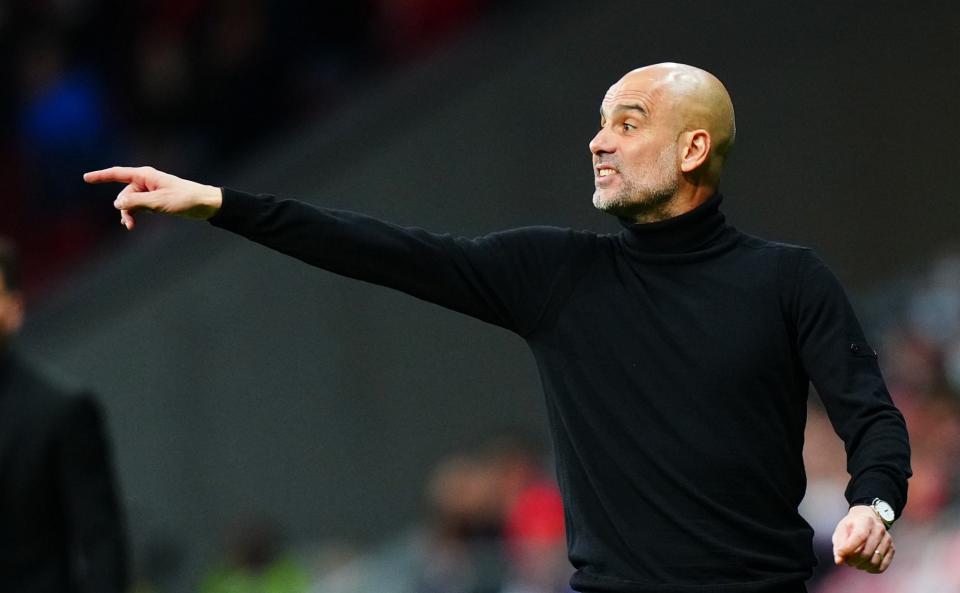
There is a feeling that he will not leave City until he has won the Champions League. The flip side of that coin, and doubtless the great hidden fear for City is that, if he was to achieve that this season - or go further and win a treble of European Cup, Premier League title and FA Cup - would he consider it an opportune moment to walk away?
Equally, he said as recently as January that he would not “betray” City by making a decision that could suddenly leave them in the lurch and the business the club do in the window could yet be influential if it helps to keep him hungry and stave off the perpetual threat of burn out. The prospect of refreshing the squad this summer with the Borussia Dortmund striker Erling Haaland and perhaps another exciting recruit or two to complement the likes of Phil Foden, who has been something of a pet project, could be enough to invigorate him for at least another couple of seasons ahead of a possible venture into international football.
Is there an ideal blueprint for the next manager?
It is easy to forget that there was more than a little unease about Guardiola’s future among the echelons of power at City when the club’s chairman, Khaldoon Al Mubarak, headed to the Maldives in the autumn of 2020 with a crucial question for his manager to answer.
Like Guardiola, Al Mubarak had taken his family along for the trip but his main motivation was not pleasure but business. He needed to know if Guardiola intended to stay on as City manager. He would do so, signing a two-year extension that November to commit himself to the club until June 2023, but only a few months earlier some City officials, genuinely fearful Guardiola could leave, had been openly - if reluctantly - discussing who might succeed the former Barcelona and Bayern Munich coach.
Mauricio Pochettino, who was then out of work, and the Leicester City manager Brendan Rodgers were considered two strong candidates along with Julian Nagelsmann, who would later go on to join Bayern from RB Leipzig.
The landscape with managers can, of course, change quickly and someone who might appear a good fit now may well not do a year or two down the line and vice versa but there would be some very clear parameters for any successor amid the pursuit of the beautiful, winning football City demand. It would have to be someone who knows the system and who would instantly command the respect of a dressing room accustomed to having the very best.
Patrick Vieira, the former City midfielder currently doing a fine job at Crystal Palace and whose progress is being followed with a keen eye, might, in time, fit the bill. Another City old boy, Vincent Kompany, is also doing well at Anderlecht, although the former captain did not have the warmest of relationships with City’s formidable chief executive, Ferran Soriano.
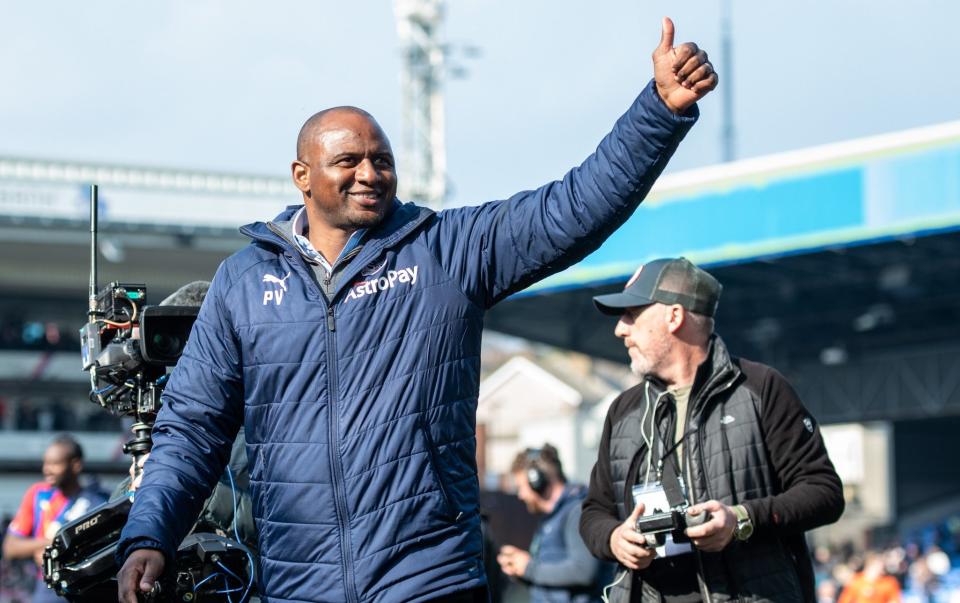
And what about the credentials of Guardiola’s former No 2, Mikel Arteta, who is in the process of rebuilding Arsenal, or Luis Enrique, the current Spain coach whose treble-winning Barcelona team from 2014-15 Guardiola regards as the best club side he has seen alongside Klopp’s Liverpool?
Who would lead the search?
The burden would rest primarily with Txiki Begiristain, City’s director of football, although it is hard to believe he would not seek at least some counsel from Guardiola himself given their relationship and Soriano will be on hand as required, not to mention a team of trusted analysts and aides.
Al Mubarak will ultimately be guided by the football experts, as he always has been, but replacing Guardiola will be the biggest decision the club’s board has had to make. The downside of having a successful manager for so long is that the repercussions of getting the succession wrong can be severe and City’s powerbrokers do not have to look too far down the road to find a reminder of that. But you would bank on City making a far better fist of any transition from Guardiola than Manchester United did with Ferguson given the structure, strategy and personnel at the club.
How much continuity should we expect?
An important question because, to improve the prospects of a successful transition and preserve continuity, Begiristain and Soriano will need to stay, at least in the short-to-medium term to allow a new manager to bed in with an experienced, familiar support structure around him and ensure there is no sharp deviation from the bigger plan.
Ferguson’s exit at Old Trafford was compounded by the departure at the same time of United’s long standing chief executive, David Gill, and the instant brain drain proved crippling and the next manager suffered badly for it. It will be inevitable that there will be departures and challenges if Guardiola goes given how his power base has widened over time.
The locals at City joke about the club being a little Catalonia in parts and, with the Abu Dhabi influence on top of that, it would be naive to say there are not frictions and tensions that could present more problems if the club was not so successful. City have a way of playing and an identity they will expect to be honoured within reason and it will be interesting to see if the role of the academy evolves over time.

 Yahoo News
Yahoo News 
